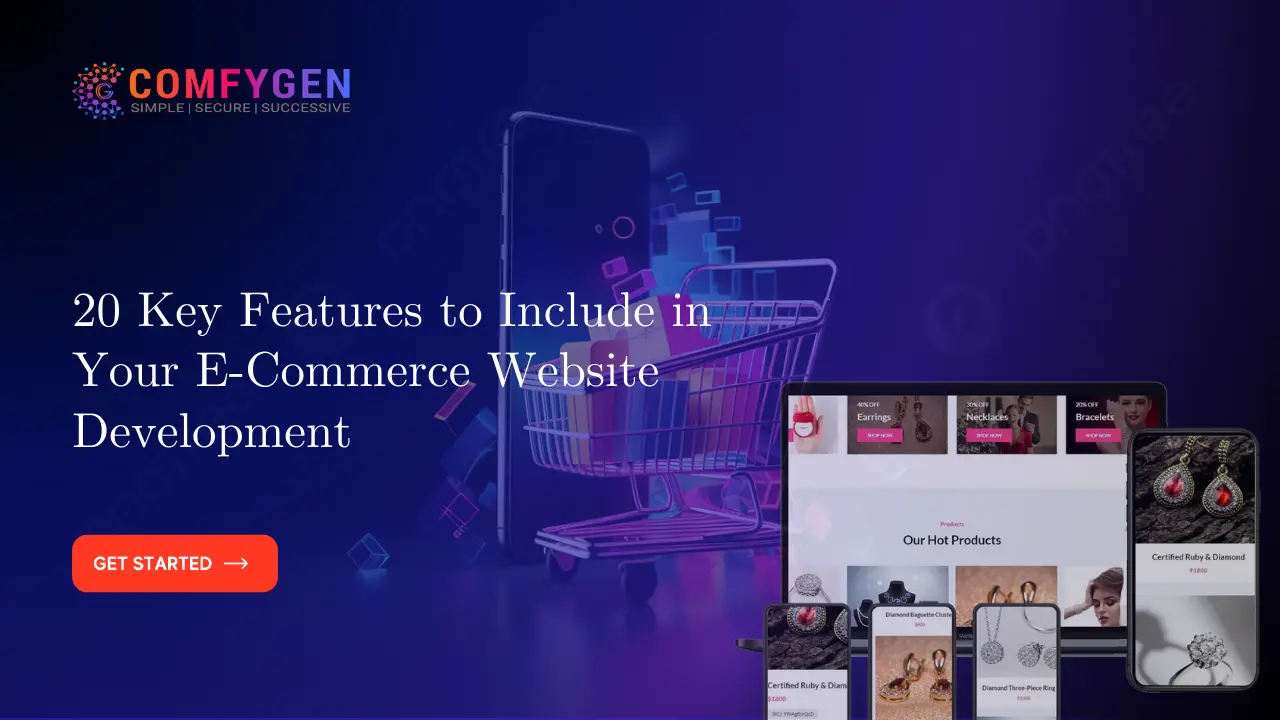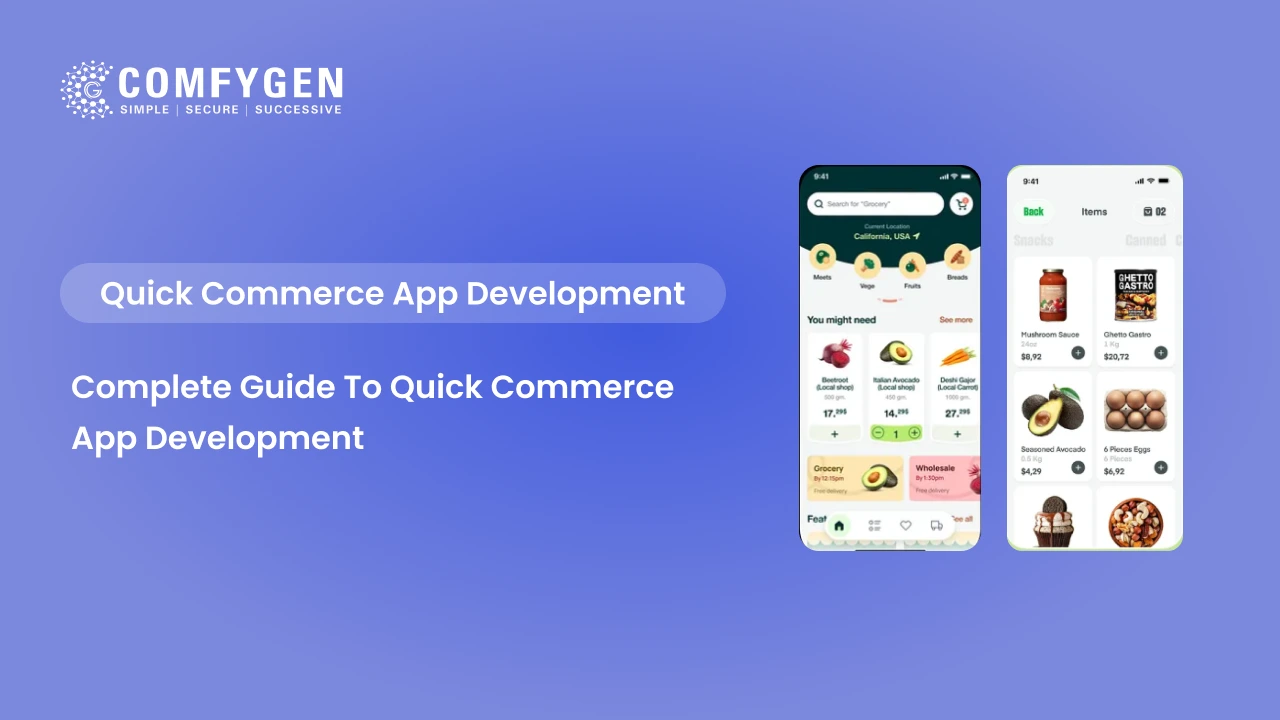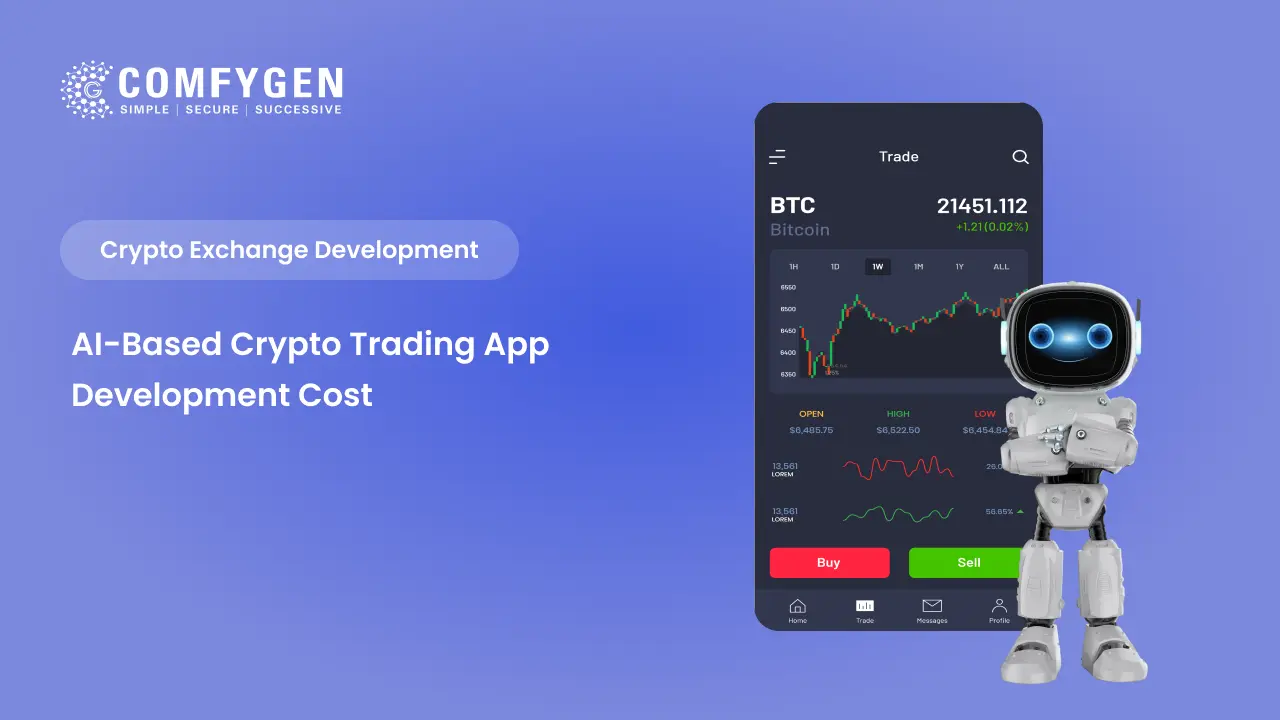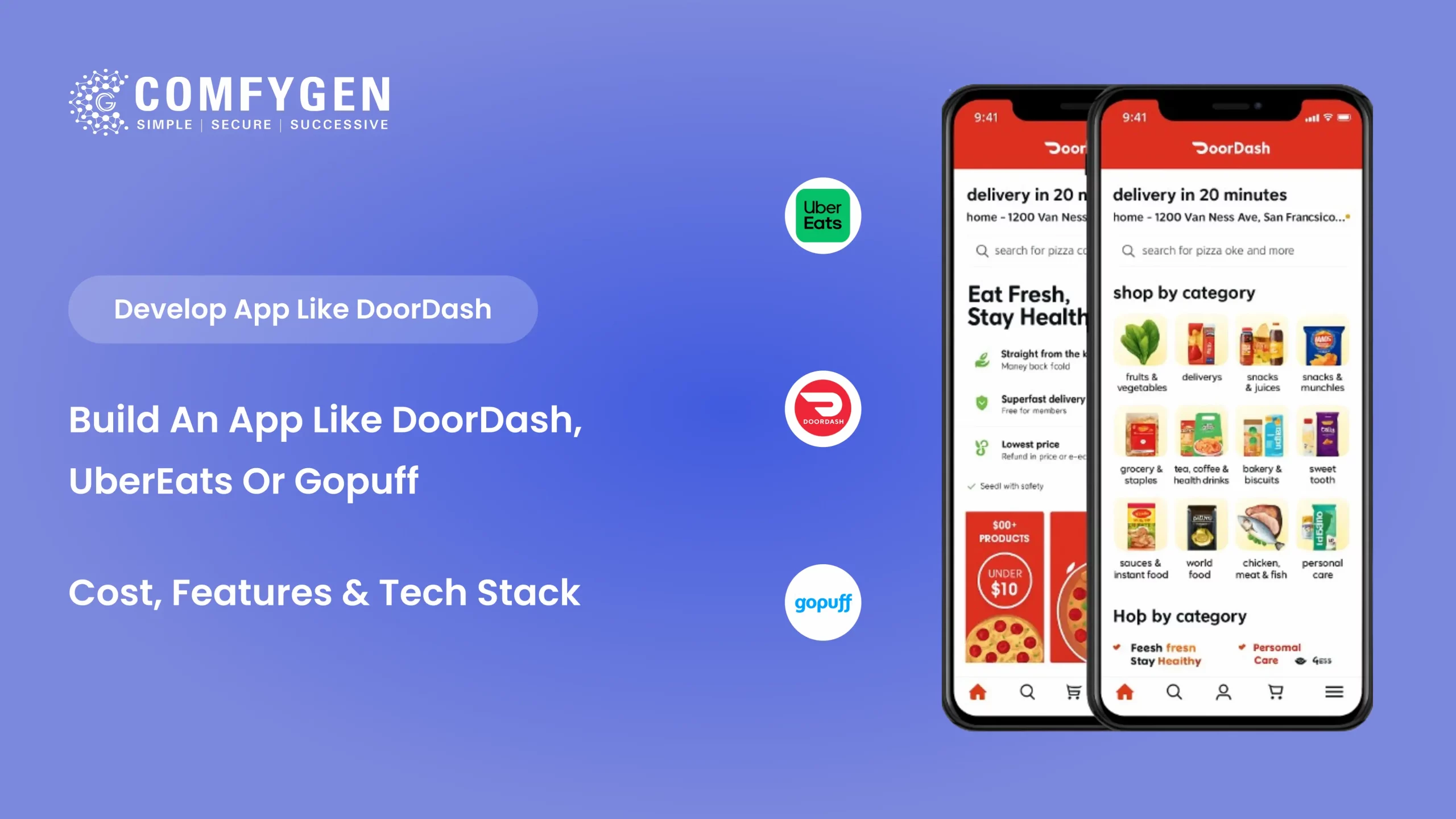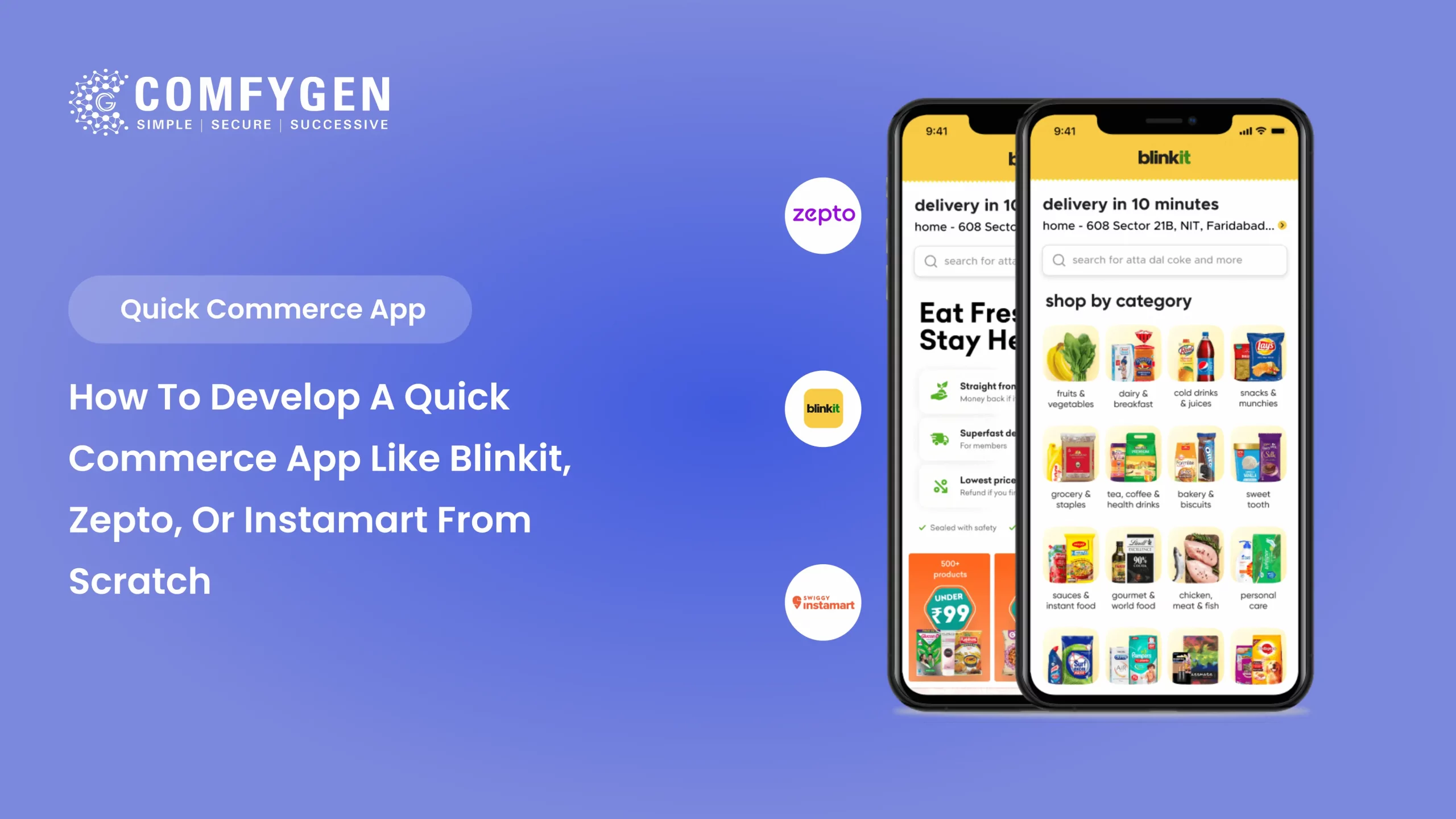20 Key Features to Include in Your Ecommerce Website Development
To thrive in today’s market, an E-Commerce website development company in the USA must stay current. This sector is highly competitive, demanding top-tier customer service. To excel, you require robust tools to ensure your endeavors yield optimal results and secure your standing as a market leader. While off-the-shelf E-Commerce platforms may appear adequate, they lack customization to suit your company’s unique needs. Opting for custom e-commerce website development grants you complete control and flexibility over features and functionality, enabling you to deliver an outstanding customer experience.
E-commerce Website Development
With so many digital products available on the market, selecting the ideal eCommerce platform for your online business may be challenging. To avoid becoming overwhelmed, we advise taking it slow and making a “shopping list” of your features. eCommerce is a rapidly changing and expanding industry where the stakes are quite high. When choosing between a pre-built platform and a bespoke eCommerce website development, it is imperative to take your company’s demands, goals, and ambitions into consideration. This step is essential since it will dictate how your company develops. If you choose poorly, starting out as an internet vendor could cost you far more than is necessary.
Key Features Of E-commerce Website Development
As the online market continues to grow, E-commerce application development companies in the USA must incorporate essential features to attract visitors and convert them into customers. While trends like animations, 360-degree product previews, dynamic product search, and smart filtering can enhance user experience, they don’t guarantee a good conversion rate. Every e-commerce site requires specific elements to establish a meaningful online presence and enhance competitiveness against other businesses.
Let’s look at the 20 requirements for offering amazing shopping experiences that an E-Commerce website development company provides.
1. SEO Options for Website Development
Search engine optimization has a significant impact on your sales and ROI, even if you don’t have a physical store and conduct all of your business online. Compared to other marketing initiatives, SEO offers the best return on investment. Despite this, the majority of online stores focus solely on paid advertisements and social media when they go public instead of taking search engines into account. They have no idea that SEO is completely free and supported by content marketing and that, over time it will only enhance domain authority, provide consistent website traffic, and boost site ranking. In order to draw in new clients, produce leads that your sales teams can pursue, and provide overall enduring benefits, your platform must be SEO-friendly.
2. E-commerce Website Mobile-Friendly
These stats demonstrate how important it is to have a mobile-friendly website if you want to draw in visitors. To create a seamless customer experience, your website’s design should instantly adjust to the mobile device’s screen size. Mobile device use is widespread; you don’t want to lose out on potential customers. Responsive design, dynamic serving, or dedicated mobile websites are your three options for making your website mobile-friendly.
Additionally, your website must be mobile-friendly because no eCommerce website development company can succeed without a connection to social media networks. People will interact with your brand on social media if they can visit your website from their phones.
Also Read: Premier E-commerce Web and App Development Company in Jaipur, Rajasthan, India
3. Box Search Function on E-commerce Website Development
A search box is necessary because today’s consumers are very impatient. We strongly advise making the search bar type-sensitive to help clients find what they’re looking for. Allow typos and choose the closest match rather than returning nothing.
There are numerous categories of customers. You should therefore permit searching by brand, category, promotions, etc. Additional filters can be added, including those for color, size, price, style, newest products, popular products, etc.
4. Navigation to Products for E-commerce Website
Your products are the most crucial components of your eCommerce website. It is crucial to place them in the appropriate product category in addition to constructing comprehensive product landing pages. Consider potential clients who are searching for a pair of pants. When they click on the pants category, they are either taken to the jackets category or discover other items that are unrelated to what they are looking for.
Your product navigation should be clear, simple to use and point consumers in the direction of the appropriate products. Navigation is used by 70% of users. Consequently, you should give your navigation menu a very high priority.
5. E-commerce Website Payment Procedures
The foundation of eCommerce platforms is the online payment system, so your website should support them. Payment gateways improve online transactions, consumer data protection, and fraud prevention. Payment choices play a big part in making judgments about purchases and finishing the sales process. Customers will turn to your competitors if they are unable to make online transactions using the desired payment option. Implementing alternative payment options in addition to debit and credit cards is highly advised. PayPal, bank transfers, and even cryptocurrency will be accepted as alternative payment methods. Choose online transactions with little to no transaction costs and more robust payment security.
Want to Launch Your Own E-Commerce Website
6. Security is Essential in Website Development
Sadly, eCommerce websites are more vulnerable to hacking. Due to the volume of private and financial data processed, they are a target for cybercriminals. Data manipulation, data loss, and data theft are all possible outcomes of the attack. You should set security controls on your platform for website security and data protection.
7. Shopping Cart
The shopping cart, as simple as it may seem, is what sets an eCommerce website apart from other types of websites. Making it simple to add or delete products, return to the product pages to make changes, or buy additional items will satisfy your customers and ensure wonderful shopping experiences.
Also Read: Top E-commerce App Development Company
8. Promotions
Flash promotion options are more likely to boost your eCommerce sales because it has been demonstrated that customers are more likely to buy a product when it is on sale or if they receive a free gift with a purchase. Utilizing special offers and promotions will encourage customers to browse your website longer and make larger purchases. Different types of promotions are available, including discounts, gifts, package deals, free shipping, etc.
9. Product Specifics
A successful product page should be comprehensive, offer guarantees, and encourage visitors to become customers. A fantastic blog post by Neil Patel offers insightful advice on how to make killer product pages. Customers are assisted in making purchases via individual product pages that provide comprehensive product details, availability, stock, size, color, sizing charts, shipping prices, product images, and product videos. Customers should be able to find all the information they require on your product pages, from important elements to small ones.
10. High-Definition Images and Videos
Image sales outpace text sales. This is why you need to have real, excellent images and videos on your website. A professional photographer should be hired to take the photos and films. They must represent your brand and entice customers.
11. Social Media Integration
Integrating social media into your e-commerce app development solution improvement method is essential for maximizing engagement and reach. By seamlessly incorporating social media systems consisting of Facebook, Instagram, and Twitter, you may enlarge your brand’s visibility and hook up with a broader target market. Encourage users to share their experiences and products on social media, fostering consumer-generated content that serves as proper testimonials. Implementing social media widgets and sharing buttons helps smooth sharing of your internet site content material, driving site visitors and improving logo focus. Leverage the strength of social media integration to amplify your e-commerce presence and foster significant connections together with your audience.
Looking Social Media Integration For Your E-Commerce Website
12. User Reviews and Ratings
User reviews and ratings play an important role in shaping consumer decisions and trust in e-commerce website & app development services. When you allow customers to share their experiences and opinions about products and services, you offer valuable insights to potential customers. Good reviews and high ratings can greatly influence purchasing decisions, while constructive criticism helps identify areas for improvement. Encouraging users to leave reviews and reviews not only increases transparency but also creates a sense of community and involvement with your brand. Adding user-friendly e-commerce web development features such as reviews and ratings strengthens trust and builds trust among potential customers, ultimately leading to sales and long-term loyalty.
13. Wishlist and Favorites
Adding wishlists and favorites to your e-commerce website enhances the user experience by allowing customers to save their favorites for future use. The wishlist feature enables users to create a personalized list of items they want to buy later, enabling them to browse their favorite items and make decisions easier On the other hand, the favorites feature for them users can bookmark particular favorites or frequent purchases By adding favorites services, you enable users greater flexibility and convenience, ultimately increasing customer satisfaction and loyalty.
14. Multiple Language and Currency Support
Providing financial support in multiple languages on your e-commerce site is essential to cater to a diverse global audience. By offering language options beyond the default language, such as English, you can get users from different locations to pick up and increase accessibility. This ensures that visitors can smoothly navigate your site and understand product descriptions, terms, and other important information in the language of their choice.
Similarly, the addition of multi-currency support allows customers to view all prices and services in their local currency, eliminating this confusion and streamlining the buying process and this feature has particular advantages for international customers, as it provides transparency and convenience when shopping online.
By leveraging multilingual financial support, you demonstrate your commitment to inclusive customer satisfaction, ultimately expanding your reach to sell products across markets
Want to take your eCommerce website to the next level?
15. Personalized Recommendations
Personalized recommendations enhance the shopping experience by providing tailored suggestions based on a user’s browsing and purchase history. By analyzing past behavior and preferences, e-commerce software development solutions can suggest relevant products that match the user’s interests and needs. These recommendations not only help users discover new items of interest but also increase engagement and encourage repeat purchases. Incorporating personalized recommendations into your website boosts customer satisfaction and loyalty while driving sales and revenue.
16. Order Tracking and Notifications
Order tracking and notifications are important features of e-commerce websites, providing customers with real-time updates on the status of their purchases. By allowing users to track their orders from shipment to delivery items, you enhance transparency and instill confidence in the buying process. Additionally, timely notifications regarding order confirmation, shipping updates, and delivery status keep customers informed and engaged, reducing anxiety and improving overall satisfaction. Implementing robust order tracking and notification systems improves the customer experience and fosters trust and loyalty towards your brand.
17. Live Chat Support
Live chat support is a valuable feature for e-commerce website & app development solutions, providing real-time support for customers throughout their purchase journey. By providing instant access to support representatives, users can quickly resolve questions, find product recommendations, and solve their problems. This personal connection increases customer satisfaction, builds trust, and makes it easier to complete a purchase. Live chat support enables businesses to provide dynamic support, improve the overall customer experience and build long-term relationships with their audience.
18. Return and Exchange Management
Effective return and exchange policies are essential for e-commerce application development services to maintain customer satisfaction and trust. By implementing a clear and simple return policy, you empower customers to initiate a return or exchange with ease. Streamlined procedures for handling returns and exchanges, including easy-to-follow instructions and prepaid postage, provide customer convenience and reduce friction in the post-purchase experience
Effective return and exchange management requires timely communication and updates, and customers will be kept informed of the status of their return or exchange request By prioritizing customer needs and ensuring a hassle-free experience, eCommerce services can reduce the likelihood of misinformation or dissatisfaction and build loyalty and retention.
Also Read: E-Commerce Development: Steps, Features, and Factors
19. Guest Checkout Option
It is a valuable resource for e-commerce websites that provide guest checkouts, allowing customers to shop without creating an account. This streamlined process reduces friction during checkout, especially for first-time or sometimes reluctant registrants. By removing the need to create an account, it greatly simplifies and speeds up the buying process, resulting in higher conversion rates and improved customer satisfaction Guest checkouts offer flexibility and satisfies their preferences, ultimately contributing to a better shopping experience for all users.
20. Integration with Third-Party Services
Integrating with third-party services enhances the functionality and capabilities of e-commerce website development services. By seamlessly connecting with external platforms and services, businesses can access a wide range of tools and services to optimize various aspects of their operations these include payment gateways, shipping containers, logistics burial management, customer relationship management (CRM) software, and marketing automation
Engaging with third-party services streamlines processes, improves efficiency, and enables businesses to provide improved products and services to their customers For example, engaging with payment gateways in a popular currency, allowing for secure and easy Internet transactions, while with a courier company, it allows for easy order fulfillment and tracking In addition to convenience, if integrating with CRM software enables businesses to better manage customer relationships and personalize marketing campaigns based on customer data.
Overall, partnerships with third-party businesses are essential for eCommerce websites to remain competitive, adaptable, and responsive to the evolving needs of businesses and consumers
Ready to Build Your Own E-Commerce App
Conclusion
As a company owner, you should keep in mind that marketing efforts in this market differ from others and demand greater involvement and attention from your team. Everything in eCommerce is about the purchasing experience, thus you should concentrate your efforts on giving your online customers unique experiences. As a result, your platform needs to be completely in line with your company’s goals and include features that marketers may use to provide an excellent user experience.

Mr. Saddam Husen, (CTO)
Mr. Saddam Husen, CTO at Comfygen, is a renowned Blockchain expert and IT consultant with extensive experience in blockchain development, crypto wallets, DeFi, ICOs, and smart contracts. Passionate about digital transformation, he helps businesses harness blockchain technology’s potential, driving innovation and enhancing IT infrastructure for global success.

